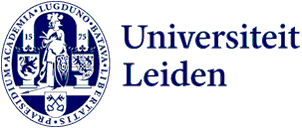12 search results for “microplastics” in the Staff website
-
Whale poop reveals plastics problem: three million microplastics per day
Whales in the vicinity of the city of Auckland, New Zealand consume large amounts of microplastics every day. A team of international researchers reached this conclusion after carefully examining whale poop. The team included Thijs Bosker, Associate Professor in Environmental Sciences at Leiden University…
-
 yuchao Song
yuchao SongScience
y.song@cml.leidenuniv.nl | +31 71 527 2727
-
 Laura Julia Zantis
Laura Julia ZantisScience
l.j.zantis@cml.leidenuniv.nl | +31 71 527 2727
-
 Martina Vijver
Martina VijverScience
vijver@cml.leidenuniv.nl | +31 71 527 1487
-
 Thijs Bosker
Thijs BoskerScience
t.bosker@cml.leidenuniv.nl | +31 71 527 4924
-
Plastic in cigarette filters: why smoking is bad for the environment too
We all know smoking is bad for our health. But we might not have known that the cigarette filters that litter our streets also impact the environment. Esther Kentin is a lecturer at Leiden Law School. She is raising awareness of the University’s cigarette butt problem.
-
The lifecycle of a cigarette filter
The university is launching a campaign to focus extra attention on our smoke-free university locations. The University is using aptly named cigarette barrels to try to show clearly just how many cigarette filters are being saved from the environment. How harmful are these cigarette filters to the e…
-
Students work on bacterium that makes sustainable plastic
A group of biology students are working on a solution to the world’s plastics problem by getting bacteria to make biodegradable plastic.
-
Martina Vijver new Scientific Director of the CML institute
As of 1 September, Martina Vijver is the new Scientific Director of the Institute of Environmental Sciences. She succeeds Arnold Tukker, who led the institute since 2013 and served the maximum term of two times four years. Vijver has been appointed for a period of four years.
-
Living Labs and ‘pavement plants’: Leiden University’s contributions to biodiversity
Through various initiatives, Leiden University is trying to make people aware of the importance of biodiversity: the cultivation of a wide variety of micro-organisms, animals and plant species. This is important because in the Netherlands biodiversity has declined from about 40 percent in 1900 to about…
-
‘Butts off our campus’ days: Make our campus butt-free!
Facility
-
Jasper's day
Jasper Knoester is the dean of the Faculty of Science. How is he doing, what exactly does he do and what does his day look like? In each newsletter, Jasper gives an insight into his life. Jasper first wrote his column from Kuala Lumpur, and it was ready to share. Then a crisis arose this week that demanded…
